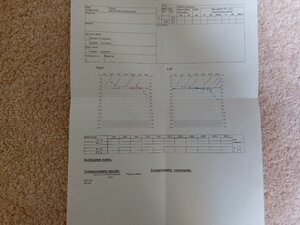Hi All!
I'm feeling a bit helpless and I just wish I didn't have this. I'm scared of this being a symptom of me losing my hearing since I have already subnormal hearing. Normally I would go to a doctor and ask but at this time is not possible and it's making me feel really anxious. Also, I'm leaving abroad away from my family. I think I have been with this tinnitus at least five days (not much, I know)... but how can I know if it's here to stay? I guess I'm just seeking for some nice words and virtual hugs.
Best of all,
Laura
I'm feeling a bit helpless and I just wish I didn't have this. I'm scared of this being a symptom of me losing my hearing since I have already subnormal hearing. Normally I would go to a doctor and ask but at this time is not possible and it's making me feel really anxious. Also, I'm leaving abroad away from my family. I think I have been with this tinnitus at least five days (not much, I know)... but how can I know if it's here to stay? I guess I'm just seeking for some nice words and virtual hugs.
Best of all,
Laura

 Member
Member
